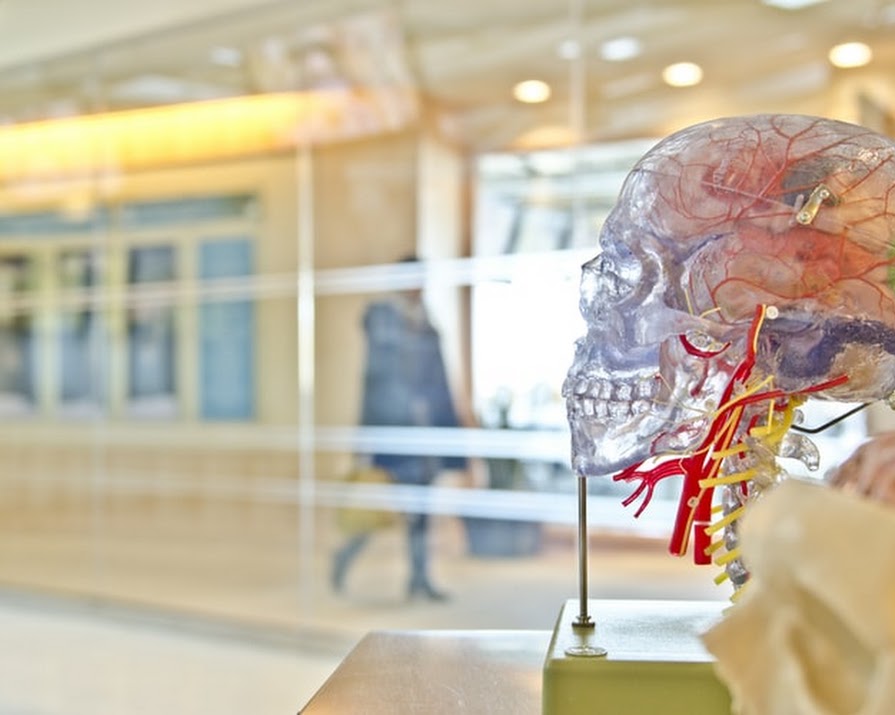
Your brain health is just as important as the rest of your body: here’s how to look after it
By IMAGE
31st Oct 2020
31st Oct 2020
Your brain health is just as important as that of the rest of your body, says psychologist and neuroscientist Dr Sabina Brennan, who says it’s never too late to start looking after it properly.
We talk about physical health and we talk about mental health. We even talk about dental and heart health. It seems crazy to me that no one talks about brain health, especially as you need your brain for everything, and I mean everything. There isn’t one thing you can do without your brain. Brain health matters.
Your brain allows you to think, to feel, to plan, to love, to laugh, to remember, and lots more besides. But that’s not all; your brain also controls your senses and other parts of your body, including your muscles, organs and blood vessels. Despite this brilliance, most people carry it around in their skulls without giving it a second thought.
Building up your brain
Your brain is unique, crafted by the experiences that you offer it and the demands that you place on it each and every day. Your brain is a dynamic organ that not only influences your behaviour, but is also influenced by your behaviour. What you do or don’t do influences how well your brain functions now and how resilient it can be when faced with future challenges such as ageing, injury or disease.
Your brain is shrinking. Well, if you are over 30, it is. We lose a little brain volume each year through a process called “atrophy”; hit 60, and the rate of that atrophy accelerates.
Brain atrophy describes the loss of brain cells and the connections between them. Your brain can atrophy by about two per cent every ten years, leading to less brain and a loss of brain function. It all sounds a bit gloomy, but don’t despair because brain atrophy is linked to many preventable, modifiable and reversible factors.
Healthy lifestyle
Adopting a brain-healthy approach to life that excludes smoking and includes regular physical exercise, social engagement and mental stimulation, together with a healthy diet and optimal amounts of sleep and stress, may help to prevent or slow down the rate at which your brain shrinks.
Certain activities offer protection against decline in brain functions in later life, while some lifestyle choices increase your risk of developing diseases that affect brain function, such as Alzheimer’s disease and other dementias.
The important take-home message is that key lifestyle changes and activities that reduce risk or offer protection can easily be incorporated into your daily routine.
Your current brain state
While there are generic tips that we can all follow to keep our brains healthy, my book, 100 Days to a Younger Brain, acknowledges that your brain is unique, shaped by your life experiences and life choices. As you work through the 100-day programme, you will gain a clear picture of the current state of your brain health and insight into what you are doing right and what needs fixing.
Armed with this information, you can set your own personal goals and create a bespoke brain health plan to optimise your brain function, slow brain ageing and minimise the impact of brain injury and brain disease
There is currently no cure for Alzheimer’s disease, which is the most common form of dementia. What most people don’t know is that approximately 30 per cent of all cases of Alzheimer’s are attributable to just seven modifiable risk factors: physical inactivity; cognitive inactivity/low educational attainment; poorly managed hypertension (high blood pressure); type 2 diabetes; midlife obesity; smoking; and depression.
Neuroplasticity
Your brain is plastic – not credit card plastic, but pliable like putty. This neuroplasticity is a fundamental feature of the human brain. This brain flexibility allows us to excel at adaptation. We tend to afford a lot of importance to our genes, but lifestyle and life experiences are critical to determining the shape of the brain, how it develops, how well it ages and how it copes if faced with injury or disease.
The life choices that we make and the experiences that we have, even as children, can increase our risk of developing Alzheimer’s disease and other dementias. The determinants of dementia and other late-life disorders stretch right back across the lifespan to infancy. Thankfully, many of these determinants are modifiable, which means that you can take action now to reduce risk later.
Even a child’s brain will struggle to develop normally in the absence of a stimulating, nurturing, brain-healthy environment. The experiences that we have in early life and those that we give our children impact on their brain health and brain development, affecting not only how their brain functions in childhood, but how well it serves them across their entire lives.
The teenage years
The teenage brain goes through a dramatic period of neural reorganisation. Brain networks strengthen with use, and unused networks are pruned as the brain matures. Poorly managed chronic stress can impair learning and memory and chronic or repeated exposure to stress has its highest impact on the brain structures that are developing in early life and on those that are undergoing age-related changes in later life.
Teenage years can be a stressful time, and parts of the brain involved in memory function, such as the hippocampus, are particularly vulnerable to stress. Adolescence represents an opportune time to condition healthy functioning of this part of the brain through brain-healthy life choices that have the potential for long-lasting positive impact.
Scientists used to think that the brain was fixed, set like concrete, but we now know that the brain is constantly changing, sculpted by behaviours, experiences and life choices. You need your brain for everything, so brain health matters. Everyone with a brain needs to consider its health. It’s never too early or too late to invest in it.
What can you do to keep a healthy brain?
Act now
Want to ensure your brain remains healthy for as long as possible? Here are just a few ways you can immediately invest in your brain health …
Cherish sleep
Disrupted sleep can harm or damage your ability to learn and make memories, and may even contribute to the development of Alzheimer’s disease. Make sure you (and your kids, if you have any) are getting the right amount of sleep for your age.
Manage stress
Acute stress can enhance memory, but poorly managed chronic stress can impair memory in the longer term. Too little stress leads to boredom and depression. You need to find your personal stress sweet spot, where you feel challenged but not overwhelmed.
Stay socially engaged
People who live a socially engaged life experience slower cognitive decline and are less likely to get Alzheimer’s disease. Social engagement helps to maintain cognitive functioning. Just ten minutes social interaction can boost your brain performance. Stay connected with friends and family, and make sure children spend time socialising in person as well as on social media.
Challenge your brain
Education is the greatest cognitive enhancer, better than any drugs or technology. Pushing yourself beyond your comfort zone or into new situations that challenge you will change your brain chemistry, impacting positively on your brain function. It doesn’t have to be academic, but it should involve challenge, novelty and learning. For example, if you play a musical instrument, push yourself to play a piece that challenges you or take up a new musical instrument. Or if you do crosswords, try the next difficulty level or challenge yourself to complete the puzzle within a time limit. Take up new hobbies, learn new things and meet new people.
Love your heart
Your heart health is closely linked to your brain health since your brain needs a reliable supply of oxygen and nutrients to function. Midlife high blood pressure, stroke, type 2 diabetes and midlife obesity increase the risk of developing Alzheimer’s disease. Know your numbers – get your blood pressure, cholesterol, and blood sugar checked and maintain a healthy weight and BMI. Consider adopting a Mediterranean-style diet with lots of colourful vegetables and oily fish.
Get physically active
Physical activity has direct benefits on the structure and functioning of your brain. In contrast, living a sedentary life of physical inactivity increases your risk for heart disease and dementia. If you reduced your daily sitting time from eight hours to six by standing for two hours every day instead, the net effect is the equivalent of running six marathons a year. Make sure children are getting regular exercise and encourage them to break up sitting spells by getting up and moving about every hour.
Adjust your attitude
What you think and how you perceive life and situations matter too. Older adults with positive self-perceptions of ageing live, on average, 7.5 years longer than older adults with less positive ones. Check your own prejudices about ageing and start seeing growing older in a more positive light, and ensure children do this too. With age comes wisdom and greater happiness.
Protect your head from injury
Put safety first – wear seatbelts, reflective gear and helmets where appropriate. Keep up to date with the latest research and medical advice to minimise and treat concussions, which are frequently sustained in a variety of sports. If you are a parent, make sure you balance the risk of head injury with the benefit of physical activity when considering sports for your children.
Dr Sabina Brennan is the author of 100 Days to a Younger Brain, Orion Spring, approx €17. sabinabrennan.ie
This article was originally published in the April 2019 edition of IMAGE Magazine.
Read more: ‘Not many people have asked if I’m ok’ Meghan’s emotional remarks about her vulnerability are sad but futile
Read more: Life with ADHD: ‘My son says it is like being in a room with 50 TVs and radios always on’
Read more: I had a mental health crisis and people did not know how to respond























